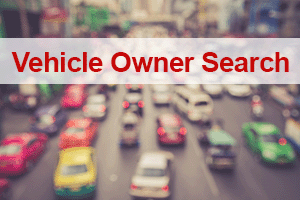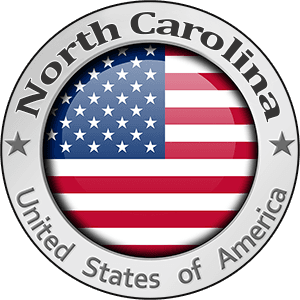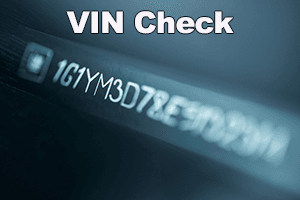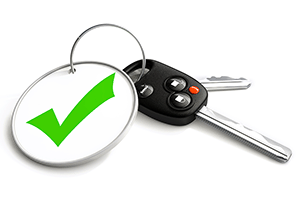
Running a North Carolina License Plate Number Search
In North Carolina, a license plate lookup can be a valuable tool that offers a multitude of information about a vehicle, its history, and ownership. This service is commonly offered by the North Carolina Department of Motor Vehicles (DMV) and authorized third-party providers. To perform a vehicle record search, you need the vehicle's complete license plate number. The Vehicle Identification Number (VIN) may also be an option to access vehicle records since it's also a unique vehicle identifier.
The basic information anyone can access includes the vehicle's specifications, options, history, accidents, and title status. You can also find out about the vehicle's registration status, expiration date, and ownership information if your search qualifies under the DPPA regulations. People run license plate lookups for various reasons. These can range from personal safety concerns to legal proceedings, or researching a used car's history. However, it's important to note that privacy restrictions are in place to protect personal information. This means that the owner's personal information may not always be accessible.
What Information Can Be Found With a NC License Plate Search?
A NC license plate number search can unlock important details about a vehicle that is used for various personal and business-related decisions. Understanding what you can access can be helpful when researching used vehicles to purchase, or for reporting suspicious activity about a vehicle. There are a multitude of reasons this search is used for, the majority of which are personal inquiries for validating a used car.
When you conduct a North Carolina license plate search, here are some typical details you might find:
1). Vehicle make, model, year, and color
2). Title status and any DMV title brands
3). Lien holder information
3). Owner's information (limited due to privacy laws)
4). Odometer verification and reported mileage
5). Accidents, recalls and damage history
6). Vehicle owner information when available
7). Service records when available
The details about registration status and title information can help verify if the vehicle can be legally sold and transferred. Knowing the vehicle's make and model ensures its alignment with what is advertised for a used car. Accident and damage history lets potential buyers know about any previous incidents that may affect a vehicle's condition, safety, and overall value. Vehicle owner information is accessible but limited by law to protect individuals' privacy. The Driver's Privacy Protection Act (DPPA) restricts access to certain personal details. Only authorized parties with a valid reason can access more sensitive data, which is protected by federal and state laws.
Why Do People Run a NC License Plate Lookup?
People and businesses have various official and personal reasons to run a NC license plate lookup. Understanding these reasons and motives can highlight the importance of such vehicle record services. For many, personal safety is a primary concern, and being able to lookup accident history and recalls is always good to know before making a used car purchase. Also knowing that the vehicle has no outstanding liens or title brands can prevent future legal troubles.
There are also legal needs that prompt individuals to seek vehicle information. During legal proceedings, such as divorce or estate settlements, accurate vehicle details are required. A license plate check ensures transparency in the division of assets.
Additionally, businesses find these vehicle records and driver records for maintaining hiring, accountability and safety checks. Companies managing vehicle fleets rely on accurate records for maintaining and acquiring new and used vehicles. This access guarantees that their vehicle assets are up-to-date and compliant with both state and federal regulations. Overall, these checks provide a necessary service, balancing peace of mind with legal and business necessities.
Here are a few reasons why people perform NC license plate lookups:
1). Verifying vehicle ownership and vehicle history
2). Ensuring personal safety and security
3). Conducting legal due diligence during transactions
4). Managing vehicle fleets for businesses
5). Checking for legal issues such as liens or salvage titles
6). Toll Roads and Tow Companies use these for locating owners
7). Looking up vehicle recalls and safety notices
How to Perform a North Carolina License Plate Lookup
Performing a North Carolina license plate lookup is a straightforward process that only involves a few steps. While the DMV is a go-to option for many vehicle resources, third-party providers often offer more detailed information about a vehicle's past, ownership information, title brands and odometer checks.
The first step is to find a resource that fits your needs. Then gather the most important piece of information, which is the license plate number. You can also use the 17 digit VIN number with some third party providers. Both the plate and VIN are unique identifiers that can be used to research vehicle records. If you are attempting to access NC license plate owner information, then you must make sure your search is compliant with the DPPA regulations.
Here is an overview of running an NC license plate number lookup:
1). Gather the license plate number and any other needed information.
2). Choose between the DMV or a third-party service.
3). Access the appropriate portal or website.
4). Follow the instructions provided, completing any necessary forms.
5). Pay associated fees if required, to access the data.
6). Use the information obtained in accordance with the DPPA.
Using the North Carolina DMV Portal
The North Carolina DMV offers a public-access portal for vehicle records. This makes accessing motor vehicle information convenient however, this is primarily intended for uses of those wanting to obtain their own vehicle records. It can be used to renew registrations, obtain vehicle titles, transfer ownership forms, and driving record resources. To use the NC DMV portal, visit their official website. Navigate to the vehicle records section for instructions. You may need to create an account or log in and verify your identity.
Third-Party Providers for NC License Plate Checks
Third-party providers offer an alternative to the DMV. They often provide quick summaries of vehicle information and are often used to research used cars and their histories. To use these services, find a reputable provider online. Verify their legitimacy and that they comply with DPPA regulations and state laws. Once chosen, follow their instructions and complete the required steps. Be prepared to pay a fee for downloadable reports or vehicle history information.
Accessing the NC License Plate Agency
If you need to renew your tags or obtain a new NC license plate then you'll need to contact or visit the NC license plate agency. This agency is a division of the Department of Transportation which is tasked with issuing and maintaining license plate databases, issuing new plates, and managing vehicle tags and registration. One of the services this agency offers is issuing specialty and personalized plates. They offer over a 100 different specialty plates for a fee that benefit various organizations and non-profit entities.
Privacy Restrictions and Legal Considerations for NC Vehicle Records
Conducting an NC license plate look up can be done by anyone, however there are various privacy and legal considerations to be aware of. It's important to understand the scope of information you can access and what is publicly accessible and what information requires permission or a valid reason to inquire about. Many personal details are protected to maintain individuals' privacy. Not all information about a vehicle or its owner is publicly accessible without having a valid reason as outlined by state and federal laws. The Driver's Privacy Protection Act (DPPA) primarily governs these restrictions and outlines what is allowed and by what entities. This act prevents unauthorized access to personal information through vehicle inquiries.
Here's a quick overview of what the DPPA shields from public view:
1). Personal addresses and contact information
2). Social Security numbers
3). Driver’s license or ID card numbers
4). Physical descriptions of owners
5). Medical or disability information
Certain entities, such as law enforcement and government agencies, have broader access to these records. However, individuals and businesses must meet specific conditions to view personal data. It's also important to use any information obtained as intended in a legal and ethical manner. Misusing vehicle records for illegal purposes can have severe consequences including fines and jail time.
What Information is Available with a NC License Plate Lookup?
Complete vehicle details and specifications, registration status, title brands, odometer verification, vehicle history, accidents, safety recalls, and ownership information if available.
How do I Perform a NC License Plate Search?
You can use NC DMV portal or third-party site. If you are accessing records for a vehicle you own, then the DMV is the go-to resource. However, if you are researching a used car or want to know more about a vehicle you are interested in, third-party providers often have more detailed information about the vehicle's past, title information, and ownership information.
Are There Fees Involved with Running a North Carolina License Plate Lookup?
Yes, if you want to access vehicle history reports, check vehicle title records, or want to find ownership information, there is usually a nominal fee for this. Many third-party providers offer these services for a minimal fee.
How Fast Can I Access NC Vehicle Records with a License Plate Search?
Access varies depending on what resource you choose. The NC DMV requires individuals to submit a vehicle records request form and it may take several days for you to receive your records through their online portal. Where third-party vehicle record websites often grant instant access to online viewing of vehicle records such as vehicle history reports, title checks, and license plate owner information.
Can I Run a NC License Plate Lookup by VIN?
Yes, the DMV and most third-party providers offer the ability to access vehicle records by either the license plate number or 17 digit vehicle identification number (VIN). Both are unique identifiers attached to the same vehicle information.
Who can legally access North Carolina license plate information?
Anyone can access basic vehicle information and vehicle history reports. However, only certain entities and businesses can access personal information, including law enforcement agencies, insurance companies, and private investigators. Additionally, businesses that need to verify vehicle ownership for legitimate reasons, such as towing companies or toll-road services, also usually have access. Individuals generally do not have the ability to look up personal ownership information without a valid reason.

North Carolina vehicle records can be accessed through the DMV directly or verified third-party resources. Vehicle record resources may include vehicle details, specs and options, registered owner information, title checks and brands, odometer verification, recalls and safety notices. The majority of NC vehicle records are publicly accessible however there are certain DPPA restrictions that protect personal information without authorization.


NC VIN Number Lookup

